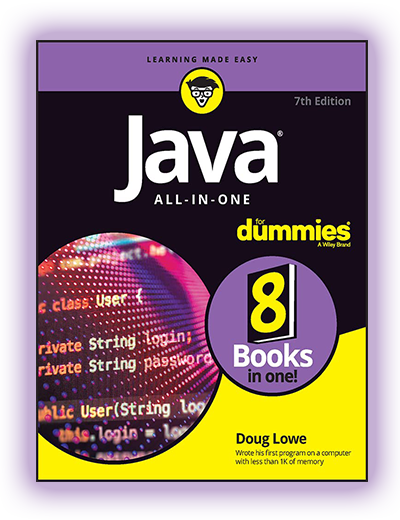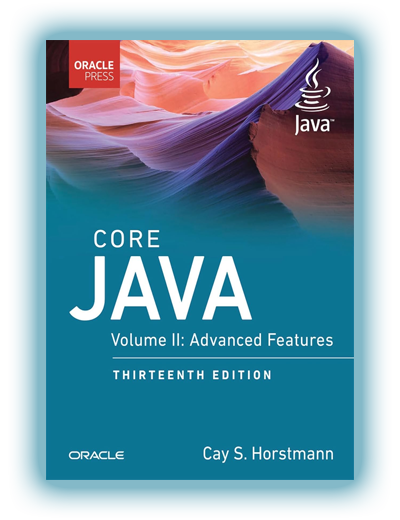I'm Alexander Moore, a Java Developer with a B.Sc. in Computer Science from the University of Illinois at Urbana-Champaign. With over a decade of experience in backend engineering and system architecture, I specialize in building scalable, fault-tolerant applications using the Java ecosystem. My background spans fintech, e-commerce, and distributed systems - but no matter the industry, I’ve always returned to the core principles I first learned through Java.
I write about Java books because I know how foundational well-structured learning resources can be. Too often, new developers dive into Java without a roadmap. My goal is to provide clarity, evaluate technical Java books with a critical eye, and guide learners toward the materials that will actually help them build real-world software. I believe in combining deep technical understanding with practical coding patterns - and I focus on books that do exactly that.
The Mindset That Shapes My Work
As a developer, I believe in clarity, stability, and continuous improvement. Code should communicate intent as clearly as it performs functionality. I value deep understanding over shortcuts, and systems thinking over narrow optimization. I write clean, maintainable Java code that scales - and help others do the same.
- Favor readability over cleverness
- Prioritize testability and modular design
- Learn the JVM, not just Java
- Avoid premature abstraction
- Think in interfaces, not implementations
- Master your toolchain (IDE, build systems, debuggers)
- Never stop refactoring - code is always evolving
Here’s What I Wish I Had When I Started - Now Shared With You
- Top Data Engineering Companies Every Software Developer Should Know
- Comparing the Top 10 E-Billing Solutions Legal Teams Rely On
- Top Software Development Companies
- Do MacBook Air batteries need to be replaced?
- What is Java? A Full Introduction
Enterprise-Grade Java Development in Action
Over the years, I've worked in both startup and enterprise environments. I’ve led teams, refactored legacy codebases, and introduced modern architecture patterns like microservices and domain-driven design. My Java experience spans frameworks like Spring, Jakarta EE, Hibernate, and more. I also work with CI/CD, containerization, and performance tuning on the JVM.
Highlighted Projects:
- PayFlow – Real-Time Transaction Engine. Built a low-latency payment processing system for a fintech startup. Integrated with Stripe and Plaid APIs, enforced ACID compliance, and used Spring Boot + Kafka for real-time event processing. Focused on concurrency control and fault tolerance.
- BookHub – Scalable Book Catalog Platform. Designed a RESTful backend for a digital publishing platform using Spring WebFlux and reactive streams. Integrated Elasticsearch for fast search indexing and PostgreSQL for metadata. Implemented unit and integration testing with TestContainers.
- JNote – Java Learning Platform. A side project that curates Java snippets and challenges for junior developers. Built with Quarkus and a simple Angular frontend. Designed to help users learn Java fundamentals through interactive coding.
- LogiTrack – Supply Chain Monitoring System. Developed modules for shipment tracking and logistics forecasting. Used Hibernate ORM with optimized caching strategies. Employed Docker and Kubernetes for container orchestration across AWS environments.
- SecureID – Enterprise Authentication Layer. Designed and implemented a custom identity provider using Spring Security, JWT, and LDAP integration. Ensured compliance with enterprise-grade security protocols and ISO 27001 standards.
Technologies I Use to Build Robust and Scalable Java Applications
As a Java Developer, I focus on building backends that are scalable, testable, and production-ready. I specialize in REST API design, multithreading, and clean architecture - with an emphasis on writing code that is easy to extend and maintain. Whether I’m working on a Spring-based enterprise system or a lightweight microservice, my approach always balances readability, performance, and stability.
Here are the technologies I use in my day-to-day Java development and how I apply them in real-world projects:
| Technology | Using Since | How I Use It in Practice |
| Java (SE & EE) | 2011 | My core language for building APIs, microservices, and backend systems. I follow modern Java practices (records, streams, lambdas) and write clean, modular code. |
| Spring Framework | 2014 | I use Spring Boot for building RESTful APIs, Spring Security for auth, and Spring Data JPA for persistence. It’s my go-to framework for enterprise-grade Java apps. |
| Hibernate / JPA | 2013 | Used for ORM and database interaction. I design efficient entity mappings, optimize queries, and manage transactional behavior for real-world performance. |
| Maven / Gradle | 2012 | I use Maven or Gradle depending on the project. Both are essential for dependency management, build automation, and multi-module project structuring. |
| JUnit & Mockito | 2013 | I rely on JUnit for unit and integration tests, and Mockito for mocking dependencies. I follow a test-first approach to ensure code reliability and catch regressions. |
| Docker | 2018 | I containerize Java applications for consistency across environments. I use Docker Compose for local dev setups and Dockerfiles optimized for CI/CD pipelines. |
| REST APIs (OpenAPI) | 2015 | I design RESTful services with proper versioning, error handling, and OpenAPI/Swagger docs. I emphasize API clarity and backward compatibility. |
| JVM Performance Tuning | 2016 | I analyze GC behavior, thread performance, and memory usage to optimize JVM configurations for production-grade applications. |
Learning Java the Right Way: My Tips for Starters
- Start with book "Learn Java with Projects" by Dr. Sean Kennedy and Maaike van Putten
- Read Effective Java and practice each item
- Use an IDE like IntelliJ IDEA early on
- Focus on data structures and OOP basics
- Don’t rush into Spring - understand the language first
- Build small CLI apps before diving into web dev
- Learn to read stack traces and debug properly
Preparing for a Java interview? Download our PDF guide packed with common questions and expert answers to sharpen your skills.
Frequently Asked Questions Answered by an Expert
Q1: What’s the best way to truly master Java?
To master Java, you need to go beyond just syntax. Focus on core concepts: memory management, garbage collection, threading, and object-oriented design. Read code written by others, contribute to open source, and solve real problems. Books like Effective Java and Java Concurrency in Practice are essential. Combine reading with actual project work - theory without practice fades quickly.
Q2: Is Spring too much for beginners?
Yes and no. Spring Boot simplifies setup, but it's still a large ecosystem. I advise learning Java fundamentals first - interfaces, exceptions, generics - and then gradually moving into Spring. If you dive in too early, you’ll likely copy boilerplate without understanding what it does.
Q3: How do I choose the right Java book?
Look for books that balance concepts with examples. I prefer books that focus on the "why" - not just "how." Reviews and community recommendations help, but also check if the book is up to date and aligns with modern practices (e.g., Java 17+). Avoid books that are just API dumps.
Q4: Is Java still worth learning in 2026?
Absolutely. Java remains a leading language in enterprise, finance, Android, and cloud-native applications. The ecosystem is vast, stable, and constantly improving (e.g., Project Loom, records, sealed classes). If you want long-term career value, Java is still a great bet.




